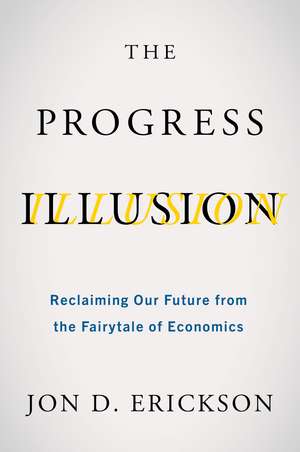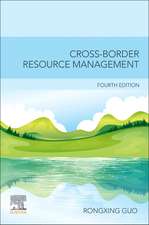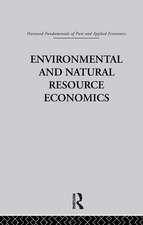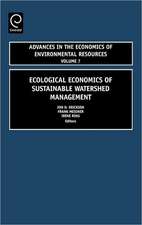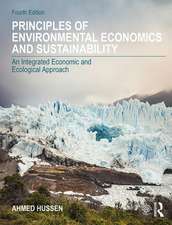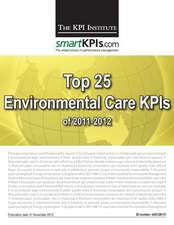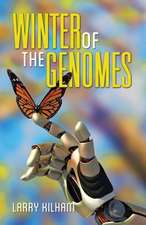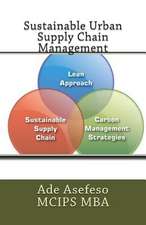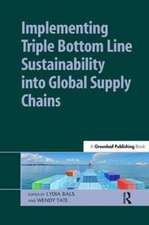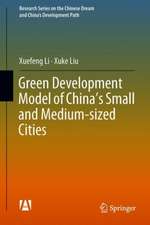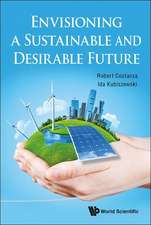The Progress Illusion: Reclaiming Our Future from the Fairytale of Economics
Autor Jon D. Ericksonen Limba Engleză Paperback – dec 2022
In The Progress Illusion, Erickson charts the rise of the economic worldview and its infiltration into our daily lives as a theory of everything. Drawing on his own experience as a young economist inoculated in the 1980s era of “greed is good,” Erickson shows how pseudoscience came to dominate economic thought. He pokes holes in the conventional wisdom of neo-classical economics, illustrating how flawed theories about financial decision-making and maximizing efficiency ignore human psychology and morality. Most importantly, he demonstrates how that thinking shaped our politics and determined the course of American public policy. The result has been a system that perpetually concentrates wealth in the hands of a few, while depleting the natural resources on which economies are based.
While the history of economics is dismal indeed, Erickson is part of a vigorous reform effort grounded in the realities of life on a finite planet. This new brand of economics is both gaining steam in academia and supporting social activism. The goal is people over profit, community over consumption, and resilience over recklessness. Erickson shows crafting a new economic story is the first step toward turning away from endless growth and towards enduring prosperity.
Preț: 240.69 lei
Nou
Puncte Express: 361
Preț estimativ în valută:
46.05€ • 48.09$ • 38.12£
46.05€ • 48.09$ • 38.12£
Carte disponibilă
Livrare economică 15-29 martie
Preluare comenzi: 021 569.72.76
Specificații
ISBN-13: 9781642832525
ISBN-10: 1642832529
Pagini: 272
Dimensiuni: 152 x 229 x 20 mm
Greutate: 0.39 kg
Editura: Island Press
Colecția Island Press
ISBN-10: 1642832529
Pagini: 272
Dimensiuni: 152 x 229 x 20 mm
Greutate: 0.39 kg
Editura: Island Press
Colecția Island Press
Notă biografică
Jon D. Erickson is the Blittersdorf Professor of Sustainability Science and Policy at the University of Vermont, faculty member of the Rubenstein School of Environment and Natural Resources, and Fellow of the Gund Institute for Environment. His previous co-authored and edited books include Sustainable Wellbeing Futures, The Great Experiment in Conservation, Ecological Economics of Sustainable Watershed Management, Frontiers in Ecological Economic Theory and Application, and Ecological Economics: A Workbook for Problem-Based Learning.
Cuprins
Foreword by Herman Daly
Preface: Promises of an Ecological Economics
Chapter 1. The Education of an Economist
Chapter 2. Ascension of the Queen
Chapter 3. Growing a Market Society
Chapter 4. Coming of Age in the Econocene
Chapter 5. A New Story
Chapter 6. A New Economics
Chapter 7. A New Economy
Acknowledgments
Notes
Bibliography
Index
About the Author
Preface: Promises of an Ecological Economics
Chapter 1. The Education of an Economist
Chapter 2. Ascension of the Queen
Chapter 3. Growing a Market Society
Chapter 4. Coming of Age in the Econocene
Chapter 5. A New Story
Chapter 6. A New Economics
Chapter 7. A New Economy
Acknowledgments
Notes
Bibliography
Index
About the Author
Recenzii
"Erickson’s cri de coeur is bracing and coherent. Progressives should take heed."
"I strongly recommend The Progress Illusion for upper level undergraduates and graduate students studying economics and for professors who teach economics. This highly readable book provides a refreshing alternative to the dominant value-free, market-oriented, and growth-obsessed neoclassical theory. In particular, the book is ideal for a course in ecological economics or sustainability. The passages on climate change underscore the need for combining natural science with social science for greater resilience and for the transition to renewable energy, which is necessary to save the planet."
“Erickson has written a book for those who went through graduate programs in economics and came out doubting the neoclassical assumptions of the discipline and believing that market failure was not the exception but the norm and those who ever wondered how economics went so far astray of its role as a social science and concentrated instead on reducing humanity to perfectly rational, mathematically tractable agents….This highly engaging book is well worth the read for anyone who is ready to stop thinking about themselves as Homo economicus.”
“[The Progress Illusion] underlines the importance on non-monetary aspects of life and shows the dangers of putting a monetary price on everything, from human life to the value of planet Earth. Material progress should not be the only (and maybe not even the main) goal of man. As an economist trained in heterodox economics, I fully understand the author’s frustration with the shortcomings of mainstream economics.”
"Erickson's powerful new book shows how flawed economic thinking has shaped not only our economy but also our society and politics. The story is both deeply disturbing and hopeful, as Erickson describes an emerging brand of economics that shifts focus from GDP to well-being. Highly recommended."
"Interweaving the history of economic thought with stories of his personal scholarly journey, Jon Erickson walks us through the old ways of economic thinking that led us here and reveals a potential path forward. This book is a must-read for anyone who cares about our collective future, and the intellectual tools we need to build a brighter one."
"A searing, authoritative, and well-documented indictment of an economics that advocates economic growth as the solution for every problem created by economic growth. If you know a young person contemplating a career in economics, you owe it to them to save their soul by giving them a copy of this book."
"Given that the Arctic has mostly melted, it seems axiomatic that our planet’s economic system is not working very well. But Jon Erickson explains – in simple and powerful terms – just why that is, and just what would need to change if we were to actually build a world that worked much better. It’s a real gift to all of us!"
"In accessible language filled with stories, ecological economist Jon Erickson shows how growth-driven economies, worsening inequities, and greenhouse gas emissions are interconnected, and thus it is possible to envision alternate paths forward which address all three."
"This book is a must-read for those who wish to understand how a promising discipline strayed inexorably from a more humane path to one that extols unbridled materialism, inequity, and environmental destruction. Economics can be rescued from its self-destructive path by having more courageous, assertive, and iconoclastic scholars like Erickson."
Descriere
We live under the illusion of progress: as long as GDP is going up and prices stay low, we accept poverty and pollution as unfortunate but inevitable byproducts of a successful economy. How did we all get duped into believing the fairytale of economics?
In The Progress Illusion, Jon Erickson charts the rise of the economic worldview and its infiltration into our daily lives as a theory of everything. Drawing on his experience as a young economist inoculated in the go-go 1980’s era of "greed is good," Erickson shows how flawed economic thinking shaped our politics and determined the course of American public policy.
While the history of economics is dismal indeed, Erickson is part of a vigorous reform effort grounded in the realities of life on a finite planet. Crafting a new economic story, he shows, is the first step toward turning away from endless growth and towards enduring prosperity.
In The Progress Illusion, Jon Erickson charts the rise of the economic worldview and its infiltration into our daily lives as a theory of everything. Drawing on his experience as a young economist inoculated in the go-go 1980’s era of "greed is good," Erickson shows how flawed economic thinking shaped our politics and determined the course of American public policy.
While the history of economics is dismal indeed, Erickson is part of a vigorous reform effort grounded in the realities of life on a finite planet. Crafting a new economic story, he shows, is the first step toward turning away from endless growth and towards enduring prosperity.
